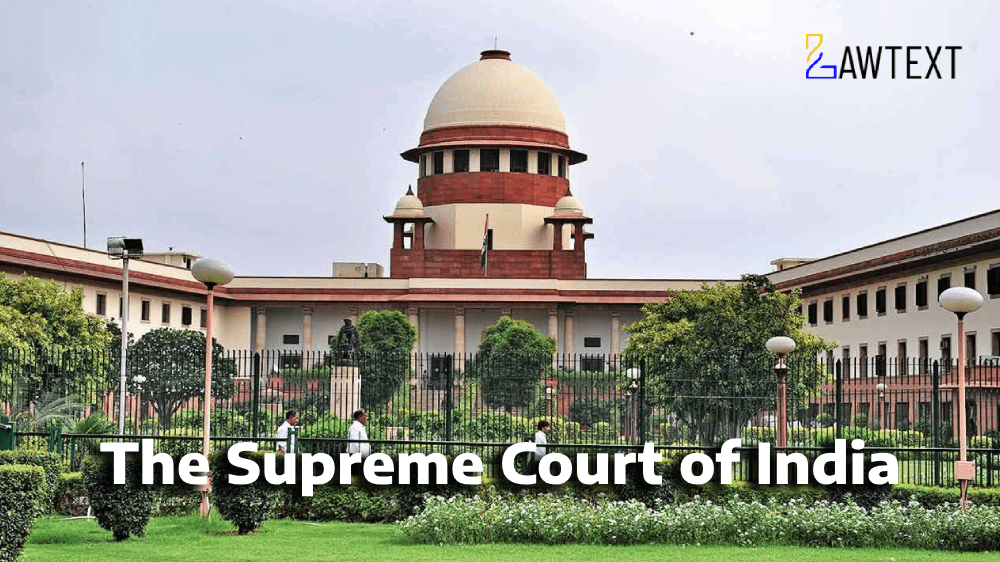CASE NOTE & SUMMARY
Constitution of India, 1950 – Article 14, Article 15, Article 16 – Domicile/residence-based reservation in PG Medical Courses held impermissible—Concept of "State Domicile" rejected—Single domicile recognized, i.e., Domicile of India—Violation of equality clause—State cannot create artificial classification based on residence.
Medical Education – NEET, State Quota, Institutional Preference – Admissions to PG Medical Courses must be based on merit—Institutional preference permissible to a reasonable extent—Reservation for residents of a State in PG medical courses impermissible—Legal precedents reaffirmed.
Judicial Precedents – Jagadish Saran v. Union of India, (1980) 2 SCC 768; Dr. Pradeep Jain v. Union of India, (1984) 3 SCC 654; Saurabh Chaudri v. Union of India, (2003) 11 SCC 146 – Supreme Court reaffirmed that residence-based reservations are invalid—Merit-based selection upheld for higher medical education—Domicile concept clarified.
(Paragraphs: 5, 7, 8, 9, 10, 11, 12, 14, 15, 16, 26, 27, 28, 29, 30, 33, 34)
Nature of the Litigation:
Challenge to the validity of residence-based reservation in PG Medical Courses under the State Quota in Chandigarh.
Who Approached the Court & Remedy Sought:
Petitioners challenged the reservation scheme that allocated 50% of State Quota seats based on residence in Chandigarh—Sought quashing of the domicile-based reservation policy.
Reason for Filing the Case:
Petitioners contended that the reservation based on residence violated constitutional principles and Supreme Court precedents—Claimed that merit was being compromised in PG medical admissions.
What Had Been Already Decided Until Now?
Punjab and Haryana High Court struck down domicile-based reservation—Held it unconstitutional—Directed admissions to be based on NEET merit—Matter appealed before the Supreme Court.
Issues for Consideration:
- Whether providing domicile/residence-based reservation in PG Medical Courses within the State Quota is constitutionally invalid? – Held: Yes.
- If permissible, what should be the extent and manner of providing such reservation? – Not applicable as it was held impermissible.
- If residence-based reservation is invalid, how should the State Quota seats be filled? – Held: Based on merit in the NEET examination, except for reasonable institutional preference.
Submissions & Arguments:
Petitioners:
- Relied on Pradeep Jain, Jagadish Saran, and Saurabh Chaudri to argue that domicile-based reservation in PG medical courses is impermissible.
- Contended that reservation should be based on institutional preference or merit, not residence.
State of Chandigarh:
- Defended reservation policy—Claimed it was necessary to ensure medical professionals serve the local population.
- Argued that residence-based reservation was distinct from domicile-based reservation.
Decision & Ratio Decidendi:
Held:
- Domicile/Residence-based reservation in PG medical courses is unconstitutional—Violates Article 14.
- Institutional preference permissible to a reasonable extent—Reservation must not compromise merit.
- State Quota must be filled based on NEET merit—Only institutional preference allowed.
- Admissions already granted under residence quota not disturbed due to equity considerations.
Subjects:
Domicile Reservation, PG Medical Courses, State Quota, Article 14 Violation, Institutional Preference, Supreme Court Precedents, NEET Merit, Constitutional Impermissibility
Citation: 2025 LawText (SC) (1) 295
Case Number: CIVIL APPEAL NO. 9289 OF 2019 WITH CIVIL APPEAL NO.9290 OF 2019 CIVIL APPEAL NO.9291 OF 2019 AND WRIT PETITION (C) NO.1183/2020
Date of Decision: 2025-01-29
Case Title: DR. TANVI BEHL VERSUS SHREY GOEL & ORS.
Before Judge: [HRISHIKESH ROY J. , SUDHANSHU DHULIA J. , S.V.N. BHATTI J.]
Appellant: DR. TANVI BEHL
Respondent: SHREY GOEL & ORS.

